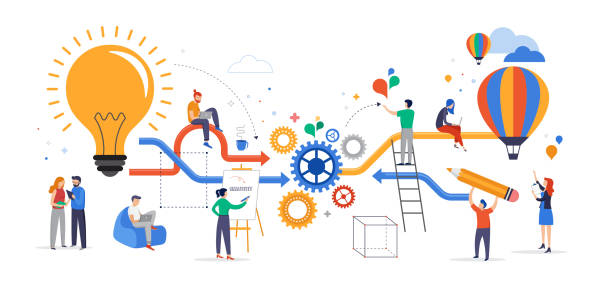Datafication has emerged as one of the most important trends in recent years, transforming the way we live and work. In this blog post, we'll explore what datafication is, why it matters, and how it's changing our world.
What is Datafication?
Datafication is the process of collecting and analyzing vast amounts of data from a wide range of sources. This includes data from social media, sensors, smartphones, and other digital devices. The data is then processed and analyzed using advanced algorithms and technologies to reveal insights, trends, and patterns that can be used to make better decisions and improve operations.
Why Does Datafication Matter?
Datafication matters because it enables organizations to gain insights into a wide range of behaviors and patterns that were previously hidden. For example, companies can analyze consumer behavior to better understand their customers and improve their marketing efforts. Healthcare providers can analyze patient health data to develop new treatments and improve the quality of care. Governments can track and analyze social and economic trends to make more informed policy decisions.
Datafication also matters because it is changing the way we work and live. With more data being collected and analyzed, there is a growing need for people who are skilled in data analysis, data science, and related fields. Datafication is also driving the development of new technologies and tools for processing, analyzing, and visualizing data.
How is Datafication Changing Our World?
Datafication is changing our world in many ways. Here are some of the most significant ways:
Healthcare: Datafication is transforming healthcare by enabling providers to collect and analyze vast amounts of patient health data. This is leading to the development of new treatments and therapies, as well as improvements in the quality of care.
Education: Datafication is being used in education to track student progress and identify areas where additional support may be needed. This is helping to improve student outcomes and ensure that all students have access to high-quality education.
Marketing: Datafication is transforming marketing by enabling companies to analyze consumer behavior and develop more targeted marketing campaigns. This is leading to improved marketing effectiveness and higher conversion rates.
Government: Datafication is being used by governments to track and analyze social and economic trends, as well as to monitor and respond to public health emergencies. This is helping to improve public services and ensure that governments are more responsive to the needs of their citizens.
Finance: Datafication is transforming finance by enabling financial institutions to analyze vast amounts of financial data and develop more sophisticated risk models. This is leading to improved risk management and more accurate predictions of future financial trends.
Challenges and Risks of Datafication
While datafication offers many benefits, it also presents a number of challenges and risks. One of the main challenges is data privacy and security. With so much data being collected and stored, there is a risk that sensitive information could be compromised or misused. There are also concerns about data ownership and control, with many people questioning who owns the data that is being collected and how it can be used.
Another challenge is the potential for bias in data analysis. As data is analyzed and processed, there is a risk that it could be influenced by the biases of the analysts or the algorithms being used. This can lead to inaccurate or misleading conclusions that could have serious consequences.
Conclusion
Datafication is a powerful and rapidly evolving trend that is transforming the way we live and work. While it presents many challenges and risks, it also offers enormous potential for improving our lives and solving some of the world's most pressing problems. As datafication continues to evolve, it will be important for individuals, organizations, and governments to develop strategies for managing and using data in ways that are responsible, ethical, and sustainable.




0 Comments